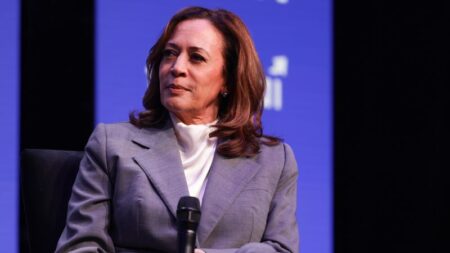In a recent political uproar, John Swinney, the First Minister of Scotland, has leveled accusations of racism against Reform UK specifically targeting Anas Sarwar, the leader of Scottish Labour. This incident stems from an advertisement released by Reform UK, which, according to critics, features content that promotes a type of racial division and undermines Sarwar’s integrity as a political figure.
The controversy revolves around a video disseminated by Reform UK in advance of the South Lanarkshire by-election. The ad features text stating that Sarwar is inclined to prioritize the needs of the Pakistani community. This particular messaging has raised eyebrows across the political spectrum, and both the Scottish National Party (SNP) and Labour have lodged complaints with Meta, the parent company of Facebook. They argue that the ad utilizes racially charged language that could incite division among voters.
John Swinney emphatically described the video as “blatantly racist” during his campaign appearances in the constituency of Hamilton, Larkhall and Stonehouse. He articulated his dismay, emphasizing that political discourse should be devoid of any undertones of hate or division. Swinney remarked to reporters, “I don’t want racism anywhere in any shape or form in our politics; there’s a responsibility on these social media companies to act.”
This wave of outrage is not confined to the SNP alone; Scottish Labour has also condemned the ad, declaring it as blatantly racist. Prior to Swinney’s comments, the Labour party expressed their grievances to Meta regarding the ad’s impact, asserting that the content was offensive and divisive.
The controversy escalated as Carol Beattie, the SNP’s chief executive, asserted in her letter to Meta that the advertisement “crosses the line into race-baiting and scapegoating.” She not only sought the removal of the video but also called for clearer guidelines on how Meta would manage political advertising to avert incendiaries that could promote racial hatred. The implications of such ads on minority communities, especially the Pakistani residents of Scotland, were a significant concern echoed by various political figures and activists.
Reform UK, under the leadership of Nigel Farage, has rebutted these accusations, claiming that the video merely reflects Sarwar’s own words and positions. Their spokesperson described the outrage from Swinney and Sarwar as a “desperate attempt to deflect attention from the facts.” In this rebuttal, they suggested that if Sarwar disagrees with the content as presented, he should reconsider the statements he makes publicly.
As the political tension mounts, the by-election, set for June 5 following the death of SNP MSP Christina McKelvie, is taking center stage. Candidates from multiple parties, including SNP’s Katy Loudon, Labour’s Davy Russell, Conservatives’ Richard Nelson, and various others, will contest for the vacated seat. Each party aims to capitalize on the charged atmosphere generated by the Reform UK’s controversial ad.
Political analysts and opposition parties, including the Scottish Greens and Liberal Democrats, have similarly denounced the ad, claiming it employs “scummy tactics” designed to provoke division. The upcoming election is shaping up to be a crucial battleground for political narratives in Scotland and may have lasting repercussions on how political entities structure their messages in the future.
The scrutiny placed on Meta to act against potentially harmful political advertisements may lead to significant discussions about the responsibilities of social media platforms during election periods. As debates roar regarding inclusivity and respect in political messaging, the outcome of this particular by-election could signal broader ramifications for societal perceptions and party dynamics within Scotland’s complex political landscape.










